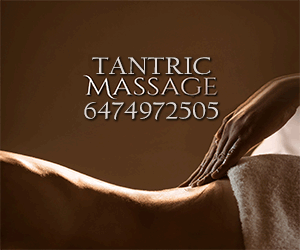F
FP Explainers
Guest

In Asia, getting massages is considered a unique experience.
Professional massages can work wonders as they aim to address issues at specific points in the body to release overall tension.
However, experts are warning against the age-old practice after the deaths of a Thai singer and a Singaporean tourist following visits to massage parlours in Thailand.
Here’s all we know about the deaths and their links to massages.
What happened to the women who got massages?
On Sunday, 20-year-old Chayada Prao-hom passed away in a hospital in the northeastern city of Udon Thani. According to reports, after three massages since October, her health had gotten worse. Nation TV reported that she had received the massages to alleviate shoulder problems.
Days before she died, on November 6, the northern Mo Lam singer shared information about the massages from the same massage parlour on Facebook along with an X-ray of her spine.
Advertisement
She claimed in the post that she was left bedridden and that her body became numb. Instead of getting better with each session, her condition got worse.
According to the South China Morning Post, Chayada said in her post that she had visited a parlour for two sessions of “a neck twist” and another massage by a masseuse using a “heavy hand,” which left her with bruises and swelling all over her body for a week.
Two weeks later, she was unable to lift her right arm and was paralysed.
“I want my story to be a lesson for those who like being massaged a lot. I must recover. I want to work already,” she wrote.
Editor’s Picks
In another similar case, police said that a Singaporean tourist died during a massage at a Phuket parlour.
According to the Bangkok Post, 52-year-old Lee Mun Tuk passed away after having breathing problems during a 45-minute oil massage at a parlour on Patong Beach.
When he arrived at Patong Hospital, he was declared dead despite the staff’s immediate first aid and the emergency responders’ CPR efforts.
The man’s wife, who was travelling with him, refused to allow an autopsy to determine the precise cause of his death, according to Patong police chief Chalermchai Hernsawad. She was bringing the body home for the funeral.
Advertisement
According to Hernsawad, she informed police that her husband had been drunk when he went for the session and that she did not believe there was any foul play because he led a sedentary life.
Also read: In Graphics | The countries you can travel to visa-free on an Indian passport
Did massages cause these deaths?
It was unclear whether the deaths were caused by massages.
According to the hospital, the singer’s death was caused by a blood infection and brain swelling.
On Monday, provisional authorities informed reporters that an investigation had been started to determine if treatments or any other underlying factors contributed to her death.
They verified that all of the masseuses and the parlour were operating under proper licensing.
Advertisement
Also read: Who is ‘Am Cyanide’, Thailand’s woman serial killer sentenced to death for poisoning 14 friends?
What are experts saying?
The deaths, in any case, shocked the country, which is a popular tourist destination and prompted experts to warn against certain masseuse techniques.
Paralysis could result from neck twisting or cervical spine massage, according to Prof Dr Thiravat Hemachudha, advisor to Rangsit University’s College of Oriental Medicine.
They could “increase the risk of harm to the blood vessel walls that supply the brain, especially the back, tearing and causing brain tissue death, hemiplegia, paralysis” if done incorrectly, he warned.
The risk of stroke-related paralysis was higher in those who were obese or had high blood pressure.
Advertisement
“The danger will increase in tandem with the force of the twisting, flicking or circling one’s head. Repeating these activities for a long time will not only create problems for the nerves but also the blood vessels at the neck,” Dr Thiravat said.
“An experienced masseuse would not twist the client’s neck because it’s known as a dangerous point,” said Dr Chatpon Kongfeangfung on TikTok, per the South China Morning Post.
“I’ve warned people before, do not ever let the masseuse twist your neck because it can be fatal,” the doctor added.
The carotid artery, which provides the brain with oxygenated blood, is located in the neck; any constriction can result in strokes or other serious brain damage.
Advertisement
While speculating that Chayada’s death was unlikely to be caused by spinal cord injury, another doctor cautioned about the dangers clients requesting excessively forceful neck massages face.
“This is what is called hyperalgesia. It means that the cells feel that they are not working properly. It will create the pain by themselves. Usually from inflammation,” neurologist DR Surat Tanprawate posted on Facebook.
“The important thing is that, when it hurts a lot, the masseuse will press it the hardest because that’s what the client wants.”
Thai massage is well known for its therapeutic benefits; in fact, Unesco has classified traditional Thai massage, or “Nuad Thai,” as a part of the country’s intangible cultural heritage.
The practice, which has its roots in farmers’ rural customs, emerged as a way to provide physical relief following lengthy workdays.
While many of the nation’s therapists hold certification from top massage schools, thousands more work informally, frequently without official training, and mostly in tourist destinations, according to SCMP.
With inputs from agencies
End of Article




































































































